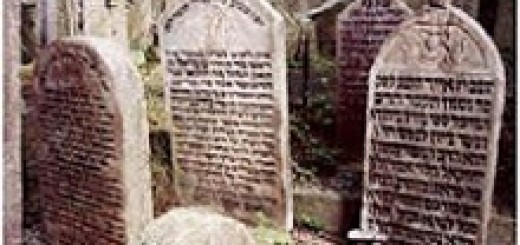By Avner Friedmann
In the beginning of this week’s Parsha HaShem said to Moshe, “Send men for yourself and have them scout the land of Canaan which I am giving to the children of Israel; one man each from his father’s tribe shall you send, everyone a leader among them.”
HaShem was giving Moshe a message[1], ‘If you want to send people, choose men like “yourself”, that is, men of humility – as HaShem attested regarding Moshe,[2] “And the man Moshe was exceedingly humble, more than any person on the face of the earth!” Only men of humility could be worthy of performing such a mission and be sensitive to the holiness of the land. At that time the land of Israel was called Canaan כנען)), which stems from the words submission or humility[3], thus hinting that only the humble are worthy to inherit it, as written,[4] ”The humble shall inherit the land.”
Unfortunately Moshe chose people who had a tiny blemish in the quality of humility. This blemish was the root of their downfall[5]. The Parsha tells us that they were important leaders,[6] “They all were distinguished men; heads of the Children of Israel”. They were comfortable with their high status and importance in the desert and as the Holy Zohar[7] tells us, they feared that once the Jewish people would enter the land of Israel, Moshe would appoint new leaders and they would lose their honorable positions. This led them to convince an entire generation to stay in the desert rather than enter the Promised Land.
This tragic incident revealed that not only the spies but, except for a couple of individuals, the entire generation did not possess the humility needed to enter the land. As a result HaShem decreed that they would die after forty years of wandering in the wilderness. This was so that the people of Israel should acquire humility before entering the land. Yehoshua and Kalev did not go along with the counsel of the ten other spies and thereby merited to enter the land. What distinguished them from the others was their humility.
The spies were given a mission to be Moshe’s agents. A good agent nullifies his own interests to the interests of the person he represents and devotes himself to the mission at hand. Even though it was not openly revealed at first, the ten spies erred before they even left on their mission. Commenting on the words, “They went and they came etc.,” Rashi comments that this is why our sages considered them to be wicked even prior to leaving on their mission, because just as they returned with wrong intentions, so did they departed with wrong intentions[8].
In his very last speech to the Jewish people before his death, Moshe hints to the above mentioned humility and tells the Jewish people,[9] “HaShem your G-d, has chosen you to be for Him a treasured people above all the peoples that are on the face of the earth… because you are fewest (the most humble[10]) of all the peoples.” We see then that the challenge of a Jew specifically revolves around cultivating and revealing this virtue.
HaShem calls us His servants, as stated, “For the Children of Israel are servants for Me, they are My servants whom I have taken out of the land of Egypt”. Rabeinu Yona[11] writes that a Jew must internalize this truth – that HaShem sent him to this world with the mission to keep His Torah and do His mitzvot. He should devote himself completely to this mission, like a servant who is sent by his king to a faraway land. As a humble servant he keeps his focus on the mission at all times until he accomplishes it and returns to his master, the king.
In spite of all the distractions and preoccupations of our daily lives, we, as servants of the King, King of kings, the Holy One, blessed is He, need to have constant focus on our mission of fully revealing HaShem’s G-dliness in the world. The way to succeed in this is through humility and self-nullification to the will of the One who sent us, blessed is He and blessed is His name. May HaShem help us to fulfill our holy mission and may we succeed in revealing His G-dliness in the world, as scripture states,[12] “For the earth shall be filled with the knowledge of HaShem as the waters cover the ocean floor.” May this happen speedily in our days. Amen
[1] Netivot Shalom, Shelach p. 70-73.
[2] Bamidbar 11:3.
[3] Netivot Shalom quotes Rabbi Avraham Azuly from his book Nitsotsei Orot.
[4] Tehilim 37:11.
[5] Netivot Shalom.
[6] Bamidbar 13:3. See Rashi.
[7] Shelach 158a-b.
[8] Rashi on Bamidbar 13:26
[9] Devarim 7:6-7.
[10] Rashi, and Targum Yonatan.
[11] Sha’arei Teshuva, Sha’ar 2, Ot 21.
[12] Isaiah 11:9






















